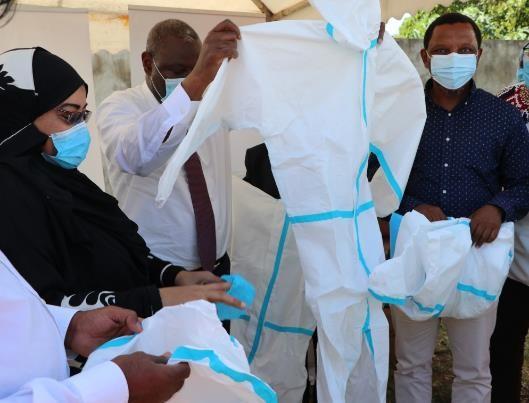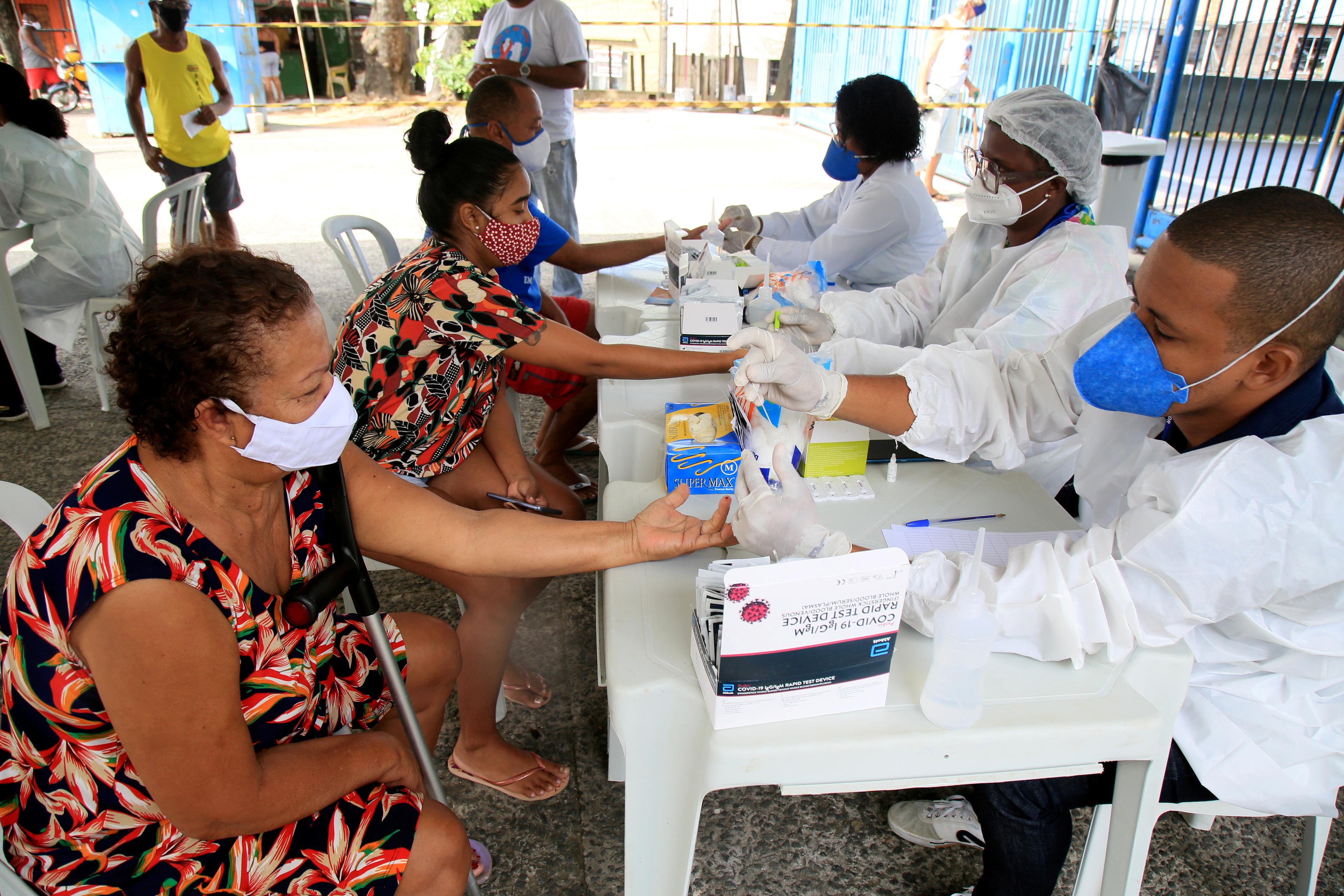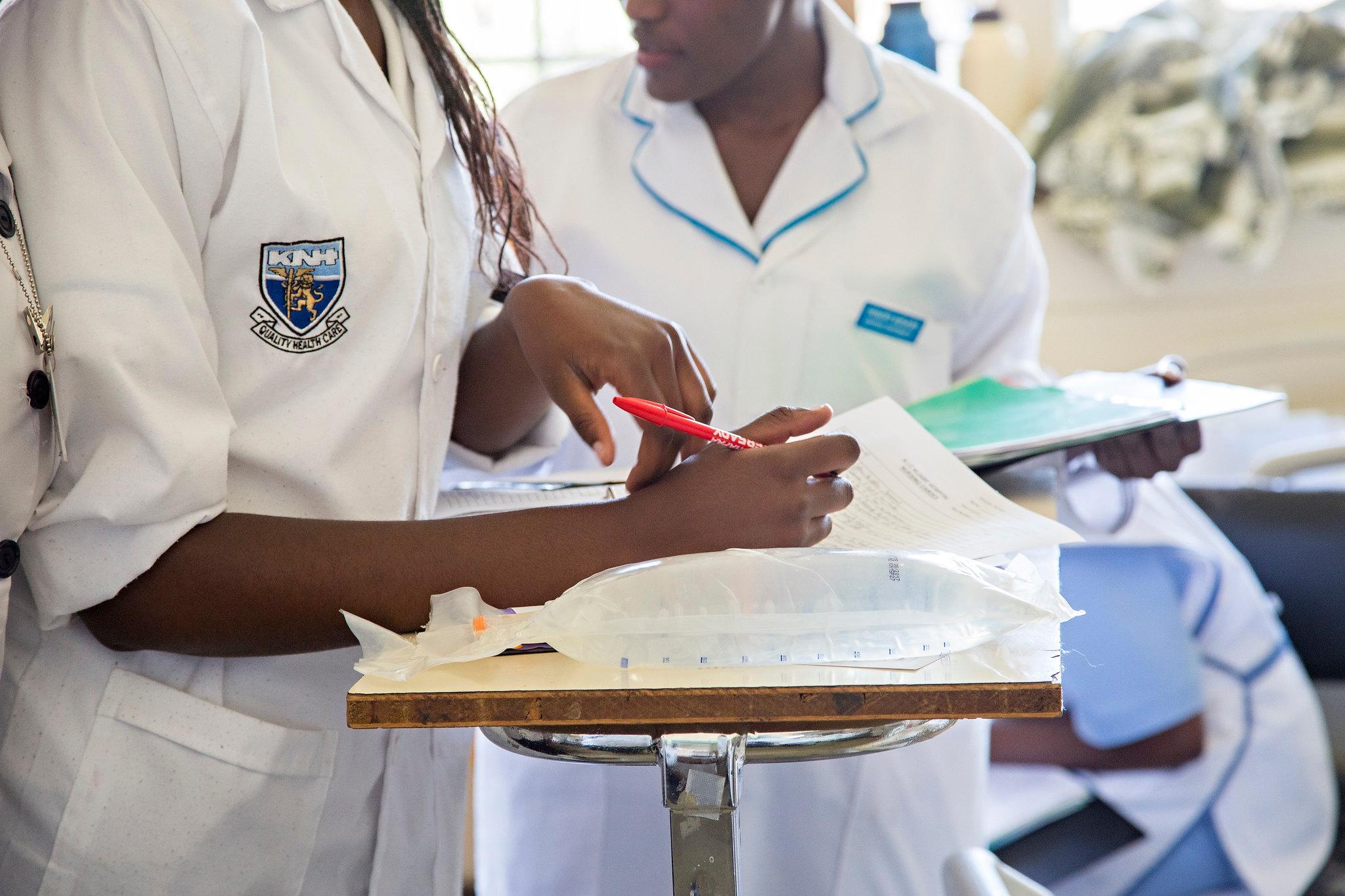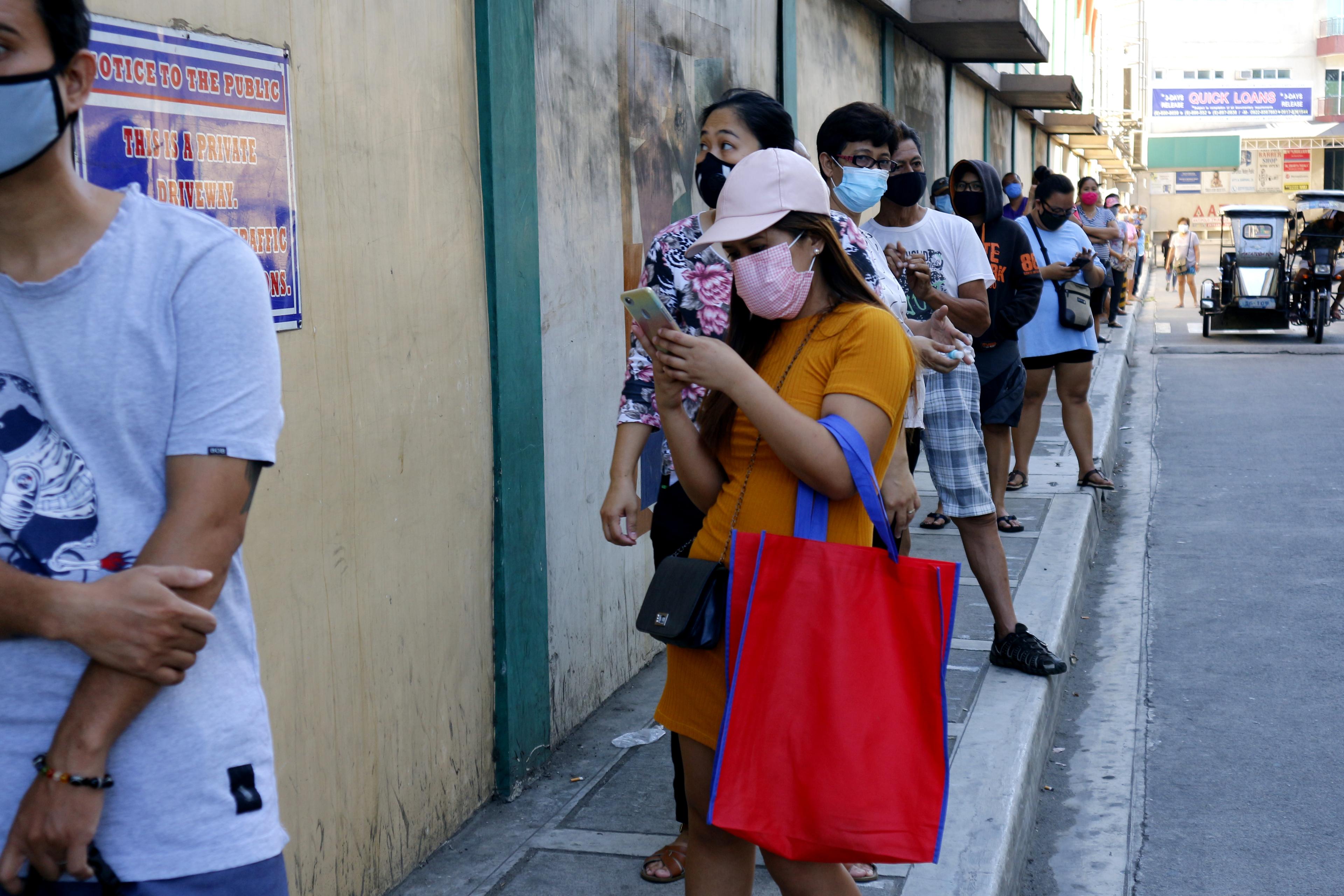Blog
How grand corruption during Covid-19 threatens human rights

This is part one of a two-part series, Fighting grand corruption in Covid times through a human rights lens. Read part two – How to hold political leaders to account for Covid-19 corruption.
Covid-19 has been an unprecedented crisis for global health, good governance and human rights – especially the right to health. As of 18 March 2021, it has infected 132.9 million people and claimed the lives of 2.9 million. The pandemic has debilitated health systems, limiting access to quality healthcare for millions of people around the world. It has also been a catalyst of grand corruption and represented a further threat to human rights, especially the right to health.
Petty corruption in and around the healthcare sector has existed for many years, in the forms of favouritism, theft and embezzlement, bribes, overcharging of services and manipulation of data. However, nothing compares to the scale of grand corruption we have seen since the beginning of the Covid outbreak. It has been an insidious challenge, infiltrating Covid-19 responses, including the procurement and purchasing of medical supplies, and most recently vaccines and the delivery of healthcare services. Much-needed resources for the Covid-19 response have been siphoned off and unscrupulous political leaders have taken advantage of relaxed emergency procedures and approached this crisis as an opportunity for graft.
How corruption erodes human rights
How do these types of corruption affect people’s human rights, and more specifically their right to health?
Our human rights depend on the institutions that give them form. They thrive wherever there is judicial independence, strong adherence to the rule of law, robust and democratic institutions, transparency, accountability and free civic space. Our human rights, and especially the rights of vulnerable individuals and communities, are at risk if our social democratic fabric is eroded. Covid-19 is contributing to exactly that.
The thing is, grand corruption had already laid the groundwork of wearing down our social democratic fabric. Corruption costs trillions of dollars each year: around 5% of global GDP. It also takes US$500 billion from the global health sector, equivalent to around 7% of total healthcare spending. Grand corruption is liable for a substantial proportion of these losses. In the end, resources lost to corruption are lost opportunities for governments to invest in ensuring people can enjoy their human rights.
Grand corruption and petty corruption
Petty corruption, also called ‘administrative’ or ‘bureaucratic’ corruption, refers to the everyday corruption that takes place when bureaucrats interact with the public. While the sums of money involved tend to be small, they are far from ‘petty’ for the people concerned.
Grand corruption or political corruption is perpetrated at the highest levels of government and usually involves both substantial benefits for the officials involved and significant losses for the state and its citizens. It can refer to specific acts such as ministers taking multi-million dollar bribes to award lucrative government concessions or embezzling millions from state coffers into a secret bank account. But it also refers to illicit exchanges in the realm of policy formation (see also state capture). Though large sums of money may be involved, other benefits like high-level appointments, inside information and policy influence can be the currency of grand corruption.
Take the right to health. For it to be achieved, governments need to ensure that healthcare goods, services and facilities are available, accessible, acceptable and of good quality for all, respecting the culture of individuals, minorities, peoples and communities, and sensitive to gender and life-cycle requirements. If corruption drains governments’ health budgets and lowers the quality of health service provision, it would be wishful thinking to believe states could fulfil such obligations.
The current experience with Covid-19 is proving this. The 2020 Corruption Perceptions Index found that corruption is weakening Covid-19 responses. It is little wonder then, that many countries that experience grand corruption are also facing high infection and death rates during the pandemic.
Where is grand corruption affecting people’s right to health?
Brazil, for example, has one of the highest Covid-19 death rates (as of February 2021). It also performs poorly in the Corruption Perception Index ranking and World Justice Project’s index score for fundamental rights. Rio state, where the governor and health secretary have both been charged with corruption over alleged graft, also had the world’s worst per-capita Covid-19 mortality rate in September 2020: more than 10,000 people died. State and federal prosecutors recognised that some of these deaths may have been avoided if top officials had not pocketed essential funding (up to US$72.2 million) for the response.
Across the Atlantic, the BBC reported that Kenyan government officials and business people allegedly misused millions of dollars of funds intended for Covid-19 medical supplies. This left healthcare workers with limited PPE (personal protective equipment) of inferior quality, risking their right to health. The situation led to strikes in the summer of 2020. The country’s testing system was also thought to be inadequate, so official figures of cases and deaths were likely to be undercutting. According to the New York Times, by late August health officials’ infection and death rates accounted for surprising low figures: 31,763 cases and 532 deaths. Yet, in a country with 48 million inhabitants and only 9,068 licensed doctors, having thousands of health workers affected by the virus means less capacity to cater for the health needs of Kenyan citizens, putting at risk their right to health as well.
The UK and Italy also stand out as the European countries with the highest Covid-19 death rates in 2020. Both have also experienced Covid-19 corruption at grand scale.
In the UK the surge in Covid-19 infections during autumn, and the restrictions and lockdowns it led to, was partly attributed to the failing test-and-trace system, which cost 12 billion pounds. The person appointed to run the system was Dido Harding, a leader in the horse-racing industry with limited experience in the health sector but with political connections to Health Secretary Matt Hancock. The poor functioning of the national system led a number of local authorities to begin their own tracing systems, despite significant budgetary constraints.
Procurement was another issue in the UK. In February 2021, a ruling by the High Court found that the health secretary breached his legal obligations concerning the publication of Covid-19-related contracts.
In Italy, endemic corruption significantly compromised the capacity of Calabria’s health system to cope with the pandemic. Calabria is Italy’s poorest region, with endemic corruption and a mafia – the ’Ndrangheta – effectively in control of parts of the healthcare system. In November 2020, the regional health chief was arrested over connections to ’Ndragheta-controlled pharmacies, which were being used for money laundering.
Despite relatively low rates of Covid-19 in Calabria, decades of corruption and mismanagement have left its health system struggling to cope with the modest spikes in Covid-19 cases. As a result, thousands of people were deprived of their right to health, and large-scale human catastrophe has been only narrowly avoided.
It is not hard to find further cases of Covid-19-related corruption around the world:
- Zimbabwe’s Minister of Health was arrested over alleged corruption related to the awarding of a US$60 million contract for Covid-19 supplies.
- The Indonesian Minister for Social Affairs was suspected of having pocketed US$1.1 million of Covid-19 aid.
- Bolivia’s Minister of Health was detained for allegedly purchasing 179 unusable ventilators at twice their original price.
- Ministers and vice-ministers in Peru, Ecuador, Bolivia and Panama were implicated in Covid-19 related corruption cases and forced to resign.
- High-level political leaders and wealthy individuals in Canada, Peru, Argentina, Spain and Poland have jumped the queue to access Covid-19 vaccines.
Grand corruption is a crime against humanity
Covid-19 has upended the world as we knew it. If grand corruption constituted a significant threat to our human rights before the pandemic, this is now more relevant than ever. Because of the way it undermines health systems and people’s right to healthcare, grand corruption during Covid-19 should be considered a crime against humanity.
Could we hold perpetrators of grand corruption accountable for their gross human rights violations? Here’s our second blog, where we explore this question.
Read more in Sharifah Sekalala and Haleema Masud’s April 2021 U4 Brief, The Universal Periodic Review process: A strategy to tackle health sector corruption (U4 Brief 2021:2).
Disclaimer
All views in this text are the author(s)’, and may differ from the U4 partner agencies’ policies.
This work is licenced under a Creative Commons Attribution-NonCommercial-NoDerivatives 4.0 International licence (CC BY-NC-ND 4.0)


